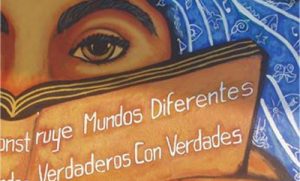Welcome to the RDP concentration at the Department of Anthropology at UNC-Chapel Hill
Race, difference, and the cultural politics of heritage, self-making, and social transformation are key concerns in our wider society. This concentration invites inclusive and creative approaches to addressing these issues, as students, scholars, and a broader public of world citizens.
The RDP concentration foregrounds race when asking questions about the ways that difference and power not only structure lives, but also provide pathways for agency. Given that the discipline of Anthropology was instrumental in shaping conceptions of race that were, and still are, widely used to explain human differences, we take it as our responsibility to critique pseudoscientific race claims, and to explore the myriad ways that “race” is used to privilege some and disempower others. After all, the process of race-making (racialization) involves the creation not only of difference, but also of sameness—that which makes us “us,” as well as that which distinguishes “us” from “them.” By emphasizing difference and power, we signal the salience of both, and acknowledge many forms of difference and inequality that shape and make our world(s).
The RDP concentration includes Anthropology’s archaeological, biocultural, linguistic, and sociocultural subdisciplines, and finds its grounding in broad, interdisciplinary engagement. Contributors to the concentration are firmly committed to research, mentorship, and teaching that pursue solutions to today’s pressing concerns. In search of this end, we actively collaborate with a variety of other UNC-CH Departments, Institutes, Centers, and Programs, as well as with communities in North Carolina, throughout the United States, and across several continents.
RDP Spotlights
Parag Jyoti Saikia has been awarded the SAPIENS Public Scholars Training Fellowship for 2023-24. Offered by SAPIENS magazine, this fellowship will train anthropologists on accessible writing and podcasting for broad nonacademic audiences. The fellowship includes year-long workshops with science SAPIENS staff and science communication writers and editors from different newspapers and magazines. This is the 2nd year of this fellowship and the theme for this year is “Impacts of Technology”. This fellowship will culminate in 2 written pieces and 1 podcast. Parag will receive an honorarium of $2500 upon successful completion of the program.
On Saturday, Sept. 9, the Descendants Project class (ANTH/FOLK 370) taught by RDP member Glenn Hinson took an all-day fieldtrip to Warren County. There, we met with a host of community consultants, all of whom spoke about the county’s racial history, with a focus on the 1921 lynchings of two men (Mr. Alfred Williams and Mr. Plummer Bullock) and the imprisonment of 16 others (the Norlina 16), following a gunfight in which a group of Black men had defended their neighborhood from an armed white mob. The day closed at Soul City, the visionary 1970s town-building project, where we met with Dr. Charmaine McKissick-Melton, the daughter of Soul City’s founder and Civil Rights pioneer, Floyd McKissick. Dr. McKissick-Melton–herself an early force in the development of Soul City–closed our day with hard lessons and fierce inspiration, prompting the students to ask for this photo at the town’s iconic sign.
RDP Statements
March 21st, 2021 – Statement in Solidarity with AAPI Communities against Hate
